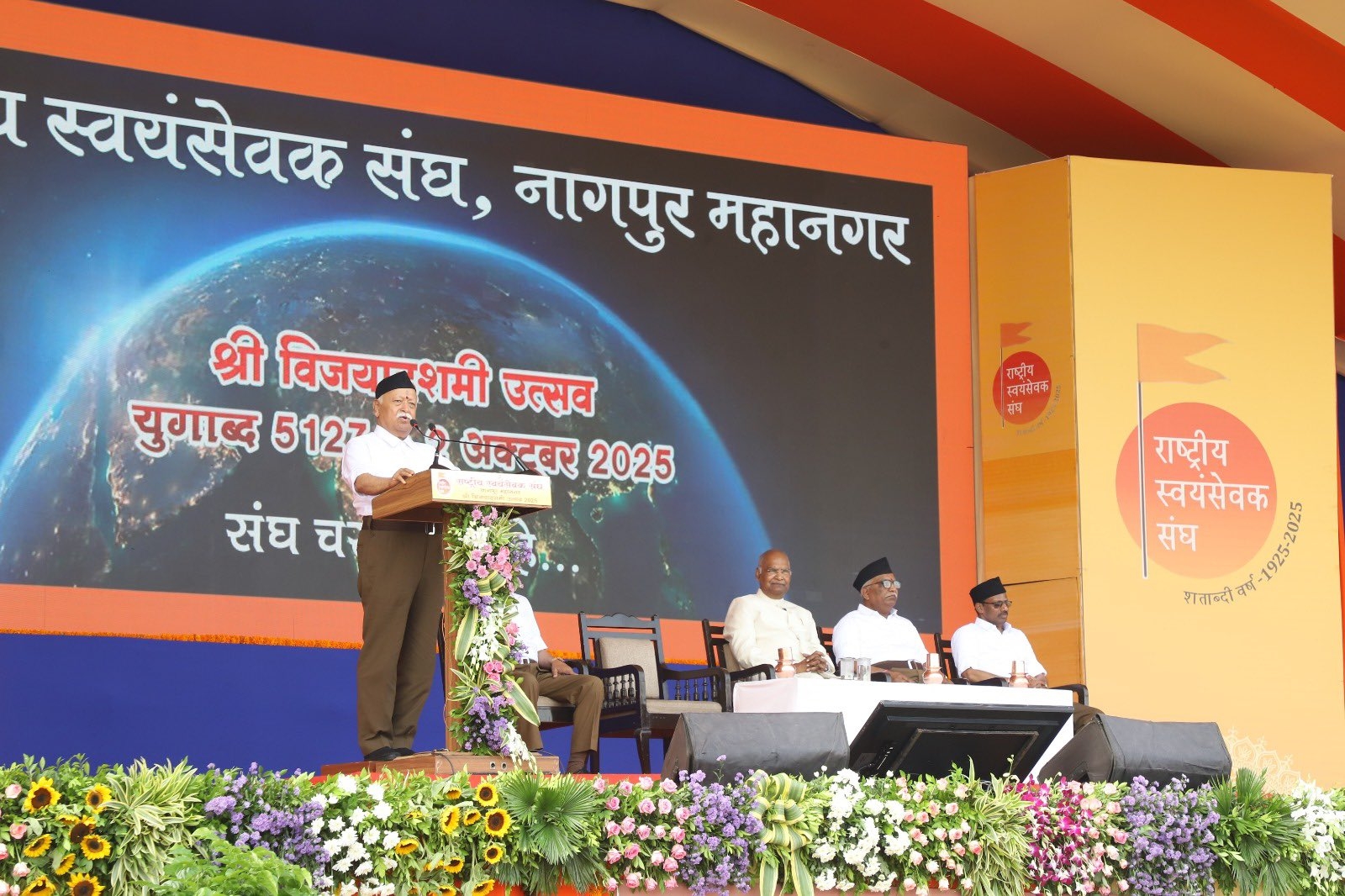Nagpur: Marking both the Vijayadashami Utsav and the centenary of the Rashtriya Swayamsevak Sangh’s (RSS), Sarsanghchalak Shri Mohan Bhagwat delivered a comprehensive address today, urging the nation to adopt a life enriched with personal and national character.
The event also coincidentally honored the martyrdom of Shri Guru Teg Bahadur ji Maharaj, as well as the birth anniversaries of Mahatma Gandhi and Shri Lal Bahadur Shastri.
Shri Bhagwat highlighted the current global and national scenario as one of both hope and challenges. He noted the success of the recent Maha Kumbh Mela as a testament to national faith and unity, but also condemned the cross-border terrorist attack in Pahalgam, which demonstrated the necessity for constant vigilance and enhanced security capabilities. He praised the government’s firm action against the attack, which tested India’s friendships on the global stage.
On the economic front, the Sarsanghchalak acknowledged improvements but stressed the global flaws of the prevailing system, including the widening gap between rich and poor and environmental degradation. He warned against blindly following materialist models, stating that for India to achieve American-level prosperity, it would require resources equivalent to five more Earths.
Shri Bhagwat called for Swadeshi (indigenous) and Swavalamban (self-reliance), asserting that India must become Aatmanirbhar (self-reliant) to act according to its own will in the globally interdependent world. He also raised a warning about the intensification of climate disasters in the Himalayas, calling it a “warning bell for Bharat and other countries of South Asia.”
Shri Bhagwat emphasized that the world is now looking to Bharatiya philosophy for solutions to global problems, which he described as rooted in an “integral approach” that balances material, spiritual, and environmental wellbeing.
He laid out the Sangh’s vision for the next century, stating that social change must come through Character building (Vyakti Nirman), with Swayamsevaks and social leaders serving as role models. Crucially, he stressed the importance of social unity, which he said rests on the foundation of ‘inherent cultural unity’—a fully inclusive Hindu culture.
He called for an end to the tendency of “taking the law into one’s own hands” or engaging in violence out of suspicion, asserting that the strength and virtue of the Hindu society are essential for national unity and development. During the centenary year, the Sangh will focus on spreading its work of Vyakti Nirman and promoting the Panch Parivartan (Five Changes) program, which includes initiatives on social harmony, family values, environmental protection, self-reliance, and adherence to civic duties.
In essence, the “SWA Model” means a model of development and life based on Bharat’s SWA—its selfhood, inherent nature, or unique identity.
The address concluded with a reminder that it is India’s destiny to provide a global Dharma that restores lost world balance and that the organization of Hindu society is key to fulfilling this vision.


